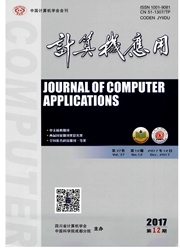

 中文摘要:
中文摘要:
基于主成分分析(PCA)的盲攻击策略仅对具有高斯噪声的测量数据有效,在存在异常值的情况下,上述攻击策略将被传统的坏数据检测模块检测。针对异常值存在的问题,提出一种基于鲁棒主成分分析(RPCA)的盲攻击策略。首先,攻击者收集含有异常值的测量数据;然后,通过基于交替方向法(ADM)的稀疏优化技术从含有异常值的测量数据中分离出异常值和真实的测量数据;其次,对真实测量数据进行PCA,得到系统的相关信息;最后,利用获得的系统信息构造攻击向量,并根据得到的攻击向量注入虚假数据。该攻击策略在IEEE 14-bus系统上进行了测试,实验结果表明,在异常值存在的情况下,传统的基于PCA的攻击方法将被坏数据检测模块检测,而所提方法基于鲁棒PCA的攻击策略能够躲避坏数据检测模块的检测。该策略使得在异常值存在的情况下虚假数据注入攻击(FDIA)仍然能够成功实施。
 英文摘要:
英文摘要:
The blind attack strategy based on Principal Component Analysis (PCA) is only effective for the measurement data with Gaussian noise. In the presence of outliers, the attack strategy will be detected by the traditional bad data detection module. Aiming at the problem of outliers, a blind attack strategy based on Robust PCA (RPCA) was proposed. Firstly, the attacker collected the measurement data with outliers. Then, the outliers and the real measurement data were separated from the measurement data containing outliers by the sparse optimization technique based on the Alternating Direction Method (ADM). Secondly, the PCA technique was carried out on the real measurement data, and the relevant information of the system was obtained. Finally, the acquired system information was used to construct the attack vector, and the false data was injected according to the attack vector. The experimental results show that the traditional attack method based on PCA will be detected by the bad data detection module in the presence of outliers, and the proposed method based on robust PCA can avoid the detection of bad data detection module. This strategy makes it possible to successfully implement False Data Injection Attack (FDIA) in the presence of outliers.
 同期刊论文项目
同期刊论文项目
 同项目期刊论文
同项目期刊论文
 期刊信息
期刊信息
